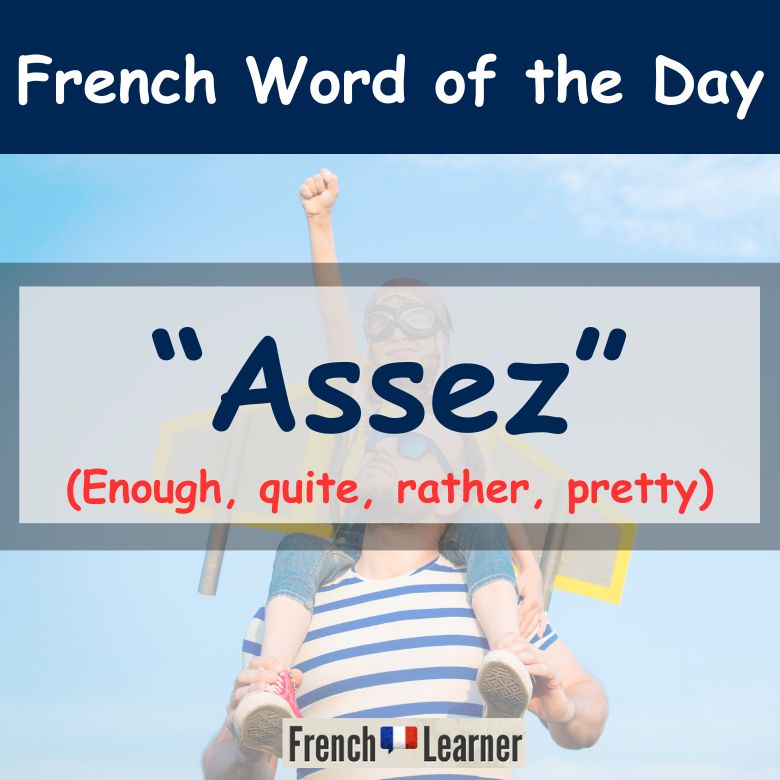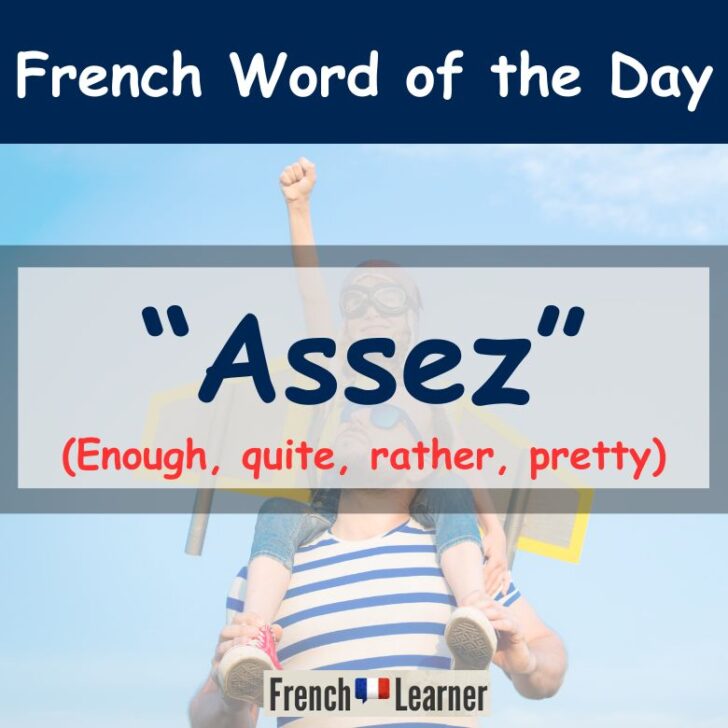In today’s lesson we’ll have a look at one of the most useful words in the French langauge: assez (pronounced ah-say). Assez has several usages with meanings including “enough”, “quite”, “rather” and “pretty” (as in pretty good).
assez
enough, quite, rather, pretty

Word origin
The French word assez comes from the Old French asez, which in turn comes from the Latin satis (enough, adequate, sufficient satisfactory).
Example sentences
In our first example sentences, you’ll see that assez is followed by de + noun. The is the exact same grammatical stucture as beaucoup de + noun (a lot of).
Enough
Nous avons assez de fromage pour faire trois pizzas.
We have enough cheese to make three pizzas.
Je n’ai pas assez de temps cet après-midi pour aller au supermarché.
I don’t have enough time this afternoon to go to the supermarket.
This example sentence uses assez + adjective, to mean “adjective + enough”.
Julien est assez grand pour manger le homard lui-même.
Julien is big enough to eat the lobster himself!
Quite, Rather, Pretty
In this example sentence, assez bien can translate to “quite well”, “rather well” and “pretty well”.
Sylvie chante assez bien mais elle danse très mal !
Sylvie sings quite well but she dances very poorly!
In the present tence, “It snows enough” is: Il neige assez. However, in the passé composé (a commonly used past tense), the adverb assez comes between the auxiliary verb and the past participle.
Heureusement il a assez neigé cette saison pour faire du ski.
Luckily it snowed enough this season to ski.
To have had enough
The expression en avoir assez de + noun translates to “to have had enough of something“. This expression is synonymous with the expression en avoir marre. En avoir assez is not as strong as en avoir marre.
J’en ai assez de ce temps froid et je veux partir en vacances !
I’ve had enough of this cold weather and I want to go on vacation.
Enough!
The WordReference page on assez suggests that “assez !” can be used to express “enough!”. However, one might more commonly hear “Ca suffit !” (that’s enough!).
Conclusion
Et voilà ! Now you know how to use assez in French. Now check out our related lessons covering trop de (too much, too many) and beaucoup de (many, a lot of).


